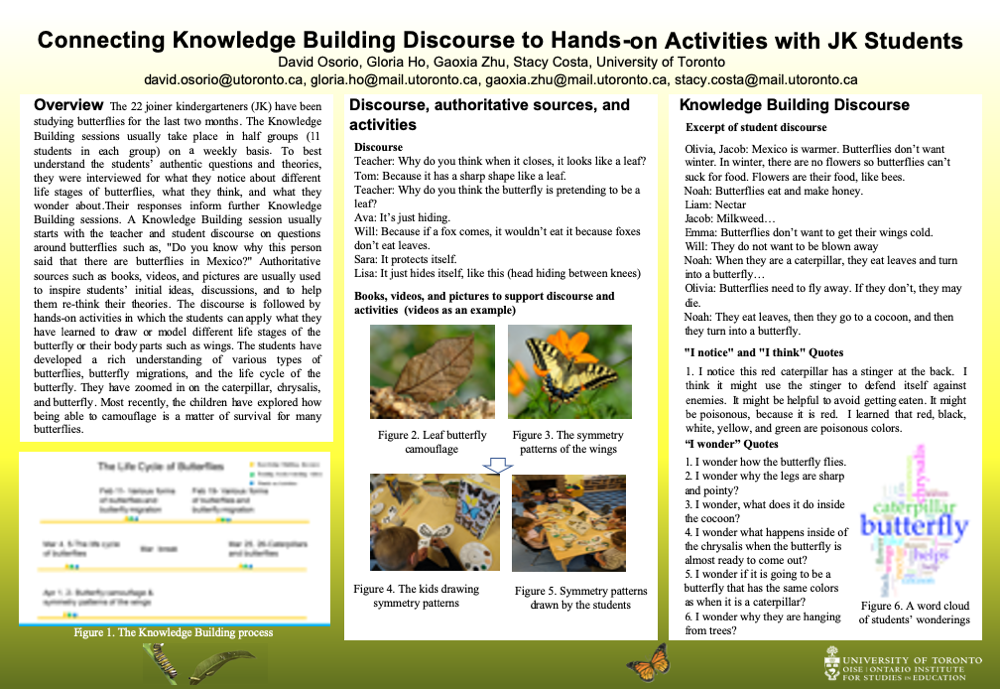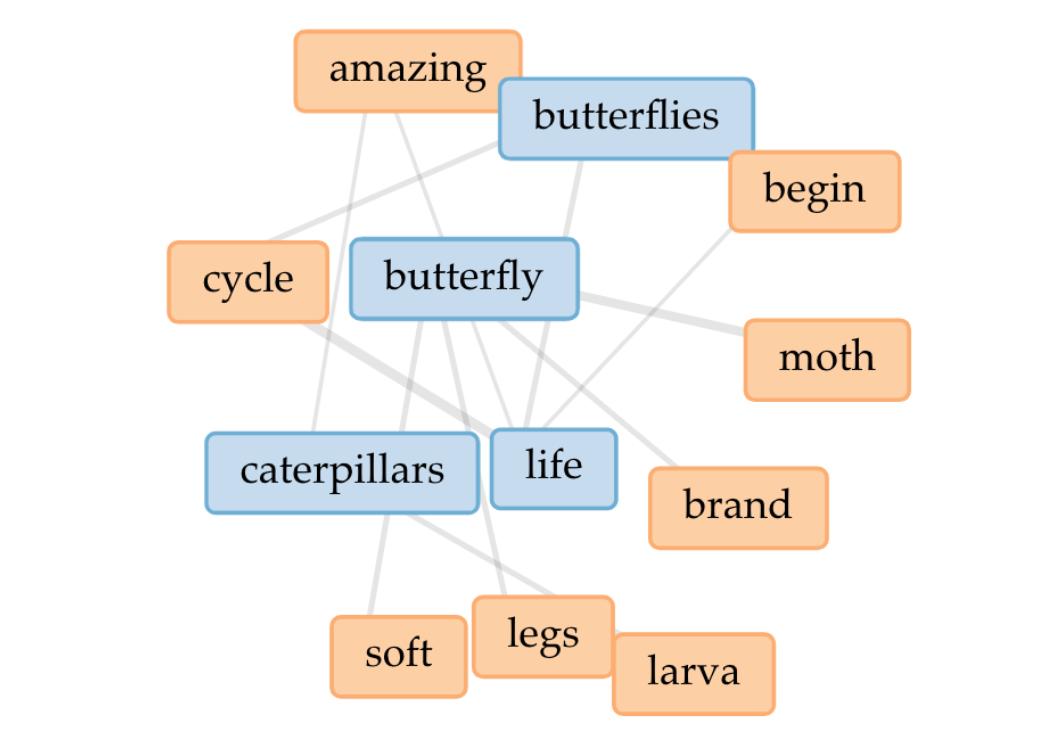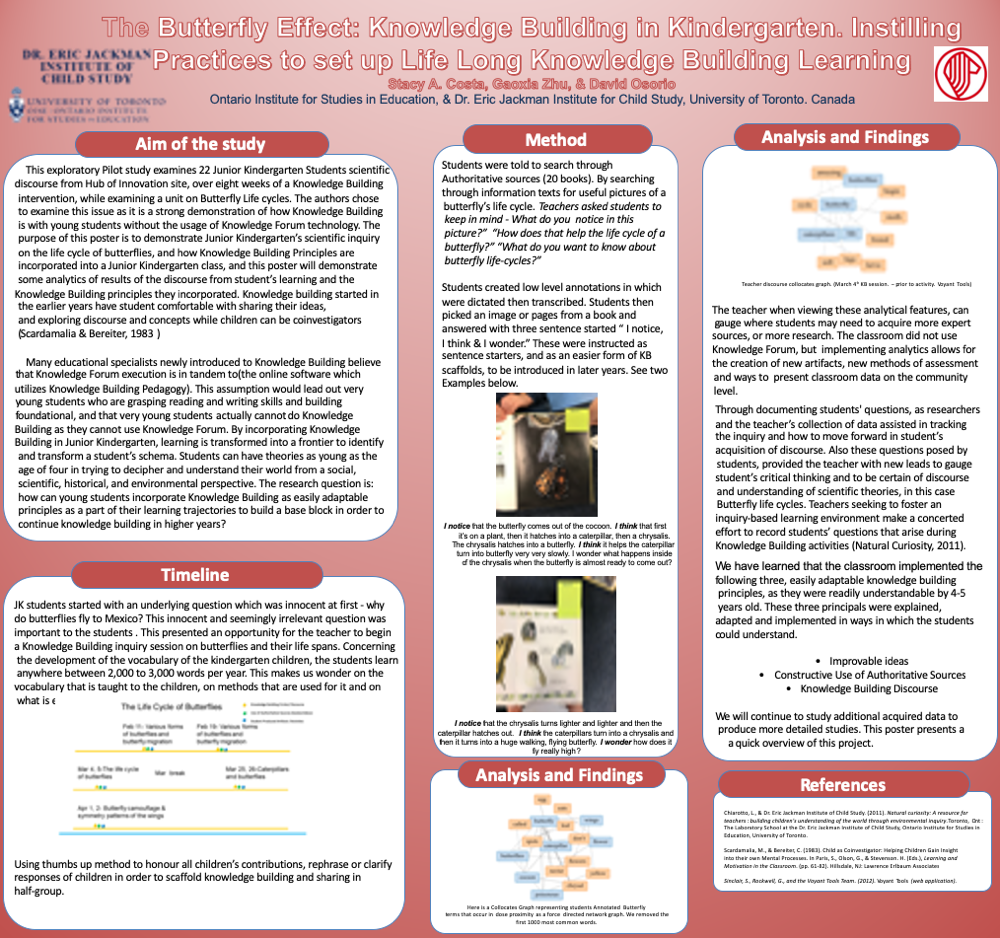The 22 joiner kindergarteners (JK) have been studying butterflies for the last two months. The Knowledge Building sessions usually take place in half groups (11 students in each group) on a weekly basis. To best understand the students’ authentic questions and theories, they were interviewed for what they notice about different life stages of butterflies, what they think, and what they wonder about.Their responses inform further Knowledge Building sessions. A Knowledge Building session usually starts with the teacher and student discourse on questions around butterflies such as, “Do you know why this person said that there are butterflies in Mexico?” Authoritative sources such as books, videos, and pictures are usually used to inspire students’ initial ideas, discussions, and to help them re-think their theories. The discourse is followed by hands-on activities in which the students can apply what they have learned to draw or model different life stages of the butterfly or their body parts such as wings. The students have developed a rich understanding of various types of butterflies, butterfly migrations, and the life cycle of the butterfly. They have zoomed in on the caterpillar, chrysalis, and butterfly. Most recently, the children have explored how being able to camouflage is a matter of survival for many butterflies.
David Osorio, Gloria Ho, Gaoxia Zhu, Stacy Costa


